
Fine Classical, Instrumental, and Specialty Recordings
Label: Equilibrium Item Number: EQ159 Format: CD Year Recorded: 2020 The Avenging Spirit SAGA Quartet Andrew J. Allen - Soprano Saxophone Matthew Tracy - Alto Saxophone Gregory Dewhirst - Tenor Saxophone Andy Wright - Baritone Saxophone Gordon Hicken - Timpani
SAGA Quartet 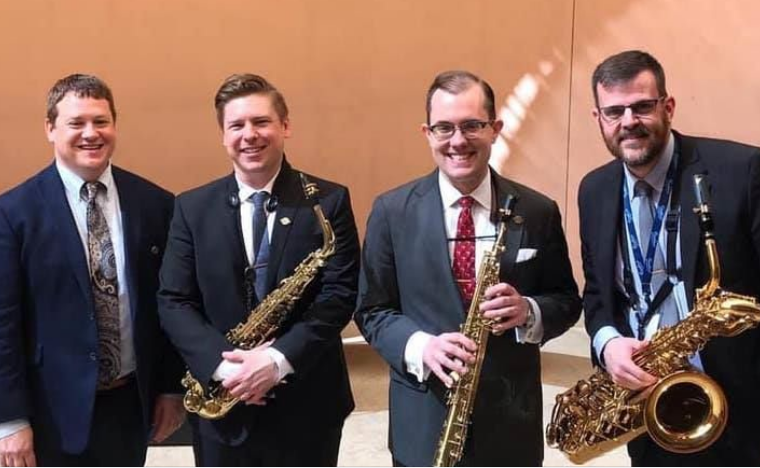 SAGA Quartet is dedicated to interpreting new works for saxophones and reviving quality music of the past. Andrew Allen - Soprano Saxophone Matt Tracy - Alto Saxophone Greg Dewhirst - Tenor Saxophone Andy Wright - Baritone Saxophone Andrew J. Allen - Soprano Saxophone 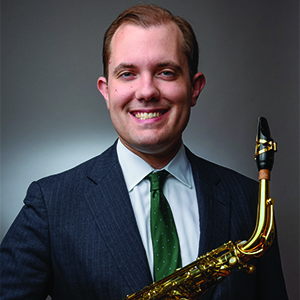 Andrew J. Allen is currently assistant professor of saxophone and coordinator of woodwinds, brass, & percussion at Georgia College. As a soloist and chamber musician, he has performed throughout the United States, Canada, Great Britain, France, and Croatia, and he has premiered more than two dozen works by François Rossé, Robert Lemay, Fang Man, Greg Simon, and Igor Karača, among others. He has performed as a concerto soloist with the Wichita Falls Symphony Orchestra, the Oklahoma State University Chamber Orchestra, and the University of Arkansas Wind Symphony. In addition to SAGA, he is active with the chamber groups Rogue Two (with percussionist Gordon Hicken), the Allen Duo, and the Carolina Saxophone Quartet. His previous recordings can be heard on the Equilibrium and Ravello labels. Dr. Allen is a Conn-Selmer Artist-Clinician and a Vandoren Artist. He exclusively performs on Henri Selmer Paris saxophones and Vandoren reeds, mouthpieces, and accessories. Matthew Tracy - Alto Saxophone 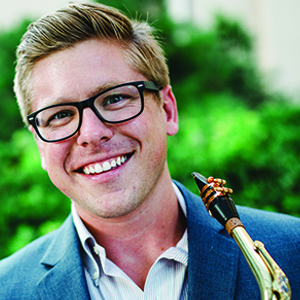 Matthew Tracy is an accomplished performer and teacher, who has received acclaim for his innovative interpretations and pedagogy. He was awarded the Doctor of Musical Arts degree in Saxophone Performance from Michigan State University, serving as a teaching assistant to renowned saxophonist Joseph Lulloff, and has appeared as a guest artist and clinician in high schools and universities across the United States. An accomplished chamber musician, Tracy has won awards in the Fischoff, Plowman, Coleman, MTNA, and North American Saxophone Alliance chamber music competitions. He has been a featured performer and presenter at North American Saxophone Alliance regional and national conferences, as well as the US Navy Band International Saxophone Symposium. An advocate for new music, Tracy has premiered new pieces for saxophone by composers such as Reynold Simpson, Phillip Sink, Justin Rito, Curtis Smith, Andy Francis, and Douglas McCausland. Tracy has appeared as a concerto soloist with the Michigan State University Symphony orchestra and the University of Arkansas Wind Symphony. In addition to his DMA and Masters degree from MSU, Tracy holds a Bachelor of Music degree from Central Michigan University studying with professor John Nichol. Tracy serves as Assistant Professor of Saxophone and Music Theory at Southwestern Oklahoma State University, where he teaches Saxophone, Chamber Music and courses in Music Theory, Aural Skills, and 20th Century Music. He is a Conn-Selmer endorsing artist, and performs exclusively on Selmer Paris saxophones and mouthpieces. Gregory Dewhirst - Tenor Saxophone 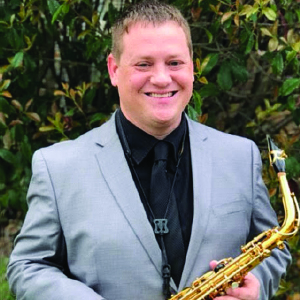 Gregory Dewhirst currently serves as Professor of Music with Tarrant County Community College, where he teaches private saxophone and clarinet, directs the jazz ensembles and coordinates the music department. A native of North Dakota, he received his Bachelor of Science in Music Education from North Dakota State University. Dr. Dewhirst received both his Master of Music and Doctor of Musical Arts degrees from the University of North Texas where he also served as a teaching fellow. His primary instructors have included Eric Nestler, Matthew Patnode, Mark Watkins, Wayne Dorothy, Eugene Rousseau, and Jim Riggs. An active performer of both classical and jazz music, Dr. Dewhirst performs as a soloist and guest artist throughout the North Texas region. He has premiered a number of solo and chamber works for the saxophone with recent world premieres at the Navy Band International Saxophone Symposium and North American Saxophone Alliance Biennial Conference. Dr. Dewhirst performs as a member of the Wright-Dewhirst Saxophone Duo, with Andy Wright, the Greg Dewhirst Jazz Quartet, and the GD Duo Flute Saxophone Duo with Meg Griffith. Dr. Dewhirst is Conn-Selmer Artist-Clinician. He performs exclusively on Henri Selmer Paris saxophones. Andy Wright - Baritone Saxophone 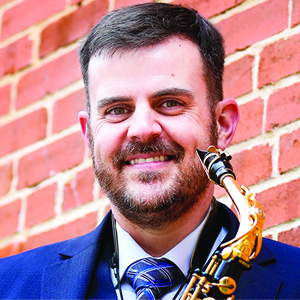 Andy Wright serves as professor of music at Grayson College in Denison, TX where he teaches saxophone and conducts the Jazz Band and Pep Band. He has been guest soloist with the Lone Star Wind Orchestra, University of North Texas Symphonic Band and the Grayson College Jazz Band along with performing with various ensembles, most notably the Dallas Winds, the Lone Star Wind Ensemble, the North Texas Wind Symphony, the Plano Symphony Orchestra and the Les Elgart Orchestra. He has performed alongside many great musicians including Ray Charles, Chris Vadala, Steve Houghton, Marc Nuccio, Andy Martin and the O’Jays. Dr. Wright is a Yamaha Performing Artist and Vandoren Artist-Clinician and performs exclusively on Yamaha Saxophone along with Vandoren mouthpieces, reeds and ligatures Gordon Hicken - Timpani 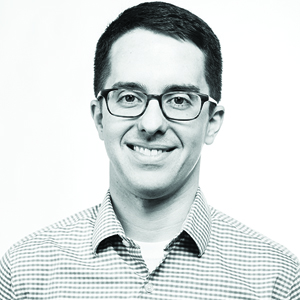 Gordon Hicken (timpani) is an Assistant Professor of Music and Assistant Director of Bands at Stevenson University outside of Baltimore, Maryland and is a member of the percussion faculty at the Interlochen Arts Camp in Interlochen, Michigan. Dr. Hicken appeared as a soloist on the 2013 Percussive Arts Society International Convention’s “Celebration of Emerging Artists” showcase concert, and he is an active guest artist, clinician, and adjudicator throughout the United States. He is a member of the saxophone and percussion duo Rogue Two along with Dr. Andrew J. Allen, and their debut album, Step Inside: New American Music for Saxophone and Percussion is available through Equilibrium Recordings. Dr. Hicken is a proud educational artist for Pearl Drums and Adams Musical Instruments, Zildjian Cymbals, Remo Drumheads, Innovative Percussion Sticks and Mallets, and Black Swamp Percussion.
All art is dependent on human connection: A connection between performer and audience, composer and performer. Without connection, there is no understanding. The bond of human to human is important at all levels. Perhaps no relationship is more important in music than that of teacher to pupil, transmitting the sacred art of music through time and place, to ever-greater degrees of innovation.
The saxophone is an instrument new to the world. Without the intervention of bold compositional minds, the instrument would still be languishing, instead of enjoying the rich, varied repertoire that it now possesses. One of the greatest artistic lights of the 20th Century, Paul Hindemith (1895-1963), saw the promise of the saxophone, writing for it in such works as the Konzertstück for two alto saxophones. Through his influence as a pedagogue, he also helped establish a continued history for the instrument.
One of Hindemith’s students was Bernhard Heiden (1910-2000). A native of Frankfurt, Heiden studied with the older composer at the Hochschule für Musik in Berlin. After initial success in his native country, the young musician fled in 1935 to Detroit, where he soon came into contact with virtuosic American saxophonist Larry Teal, yielding the Sonata for alto saxophone and piano in 1937. Following service as a U.S. Army bandmaster in the Second World War and graduate study at Cornell University, Heiden joined the faculty of the Jacobs School of Music at Indiana University. Here, he came into close contact with saxophonist and pedagogue Eugene Rosseau, for whom he wrote a wealth of literature, including Four Movements for Saxophone Quartet and Timpani (1976).
Heiden taught at Indiana until 1974 and had a large impact on a generation of composers. Among his students was Frederick Fox (1931-2011). A jazz and classical saxophonist, Fox was a native Michigander and student of Larry Teal. Following undergraduate studies at Wayne State University, he pursued graduate degrees in composition at Indiana University. He was subsequently appointed to the faculty at the same institution in 1974 and was promoted to chair of the composition department in 1981, retiring in 1994. Throughout his career, he wrote widely in a variety of mediums, but left behind a large body of works for his own instrument, including The Avenging Spirit (1989).
Among Fox’s students was David Dzubay, the current chair of the composition department at Indiana University, where he has taught since 1992. Dzubay’s music has been performed by ensembles of the highest caliber including the Atlanta, Boston, Cincinnati, Detroit, Minnesota, and St. Louis Symphonies. Like his teachers, however, he holds the saxophone in high regard, and has written widely and well for the instrument. An example of this is his first work for saxophone quartet, Di/Con[ver(gence/sions)] (1988).
Through connection, mixed with personal innovation, the saxophone has advanced. Between performer, composer, and audience, the instrument continues to grow. What will be the next step?
Produced by the SAGA Quartet Engineered by Daniel Pardo Recorded at Grayson College, Denison,Texas, May 12-14, 2019.
Label: Equilibrium Item Number: EQ159 Format: CD Year Recorded: 2020 Recording Engineer: Daniel Pardo (www.pardoproductions.com) SAGA Quartet is dedicated to interpreting new works for saxophones and reviving quality music of the past. Not Available | |||||||||||||||||||||||||||||||||||||||||||||||||
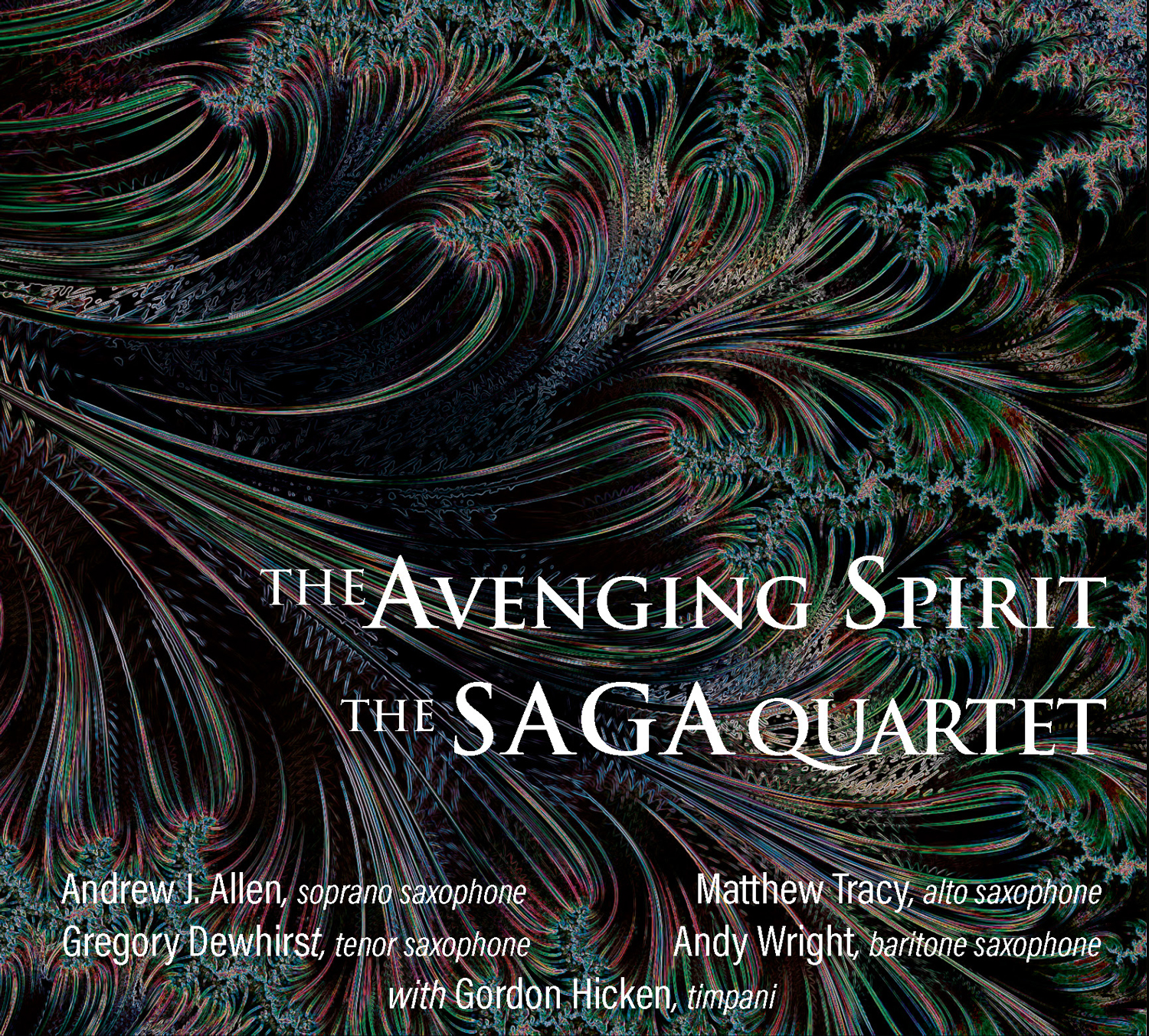
 Amazon
Amazon
 Follow Us on Twitter
Follow Us on Twitter Follow Us on Instagram
Follow Us on Instagram Visit Our Partner Soundset Recordings
Visit Our Partner Soundset Recordings